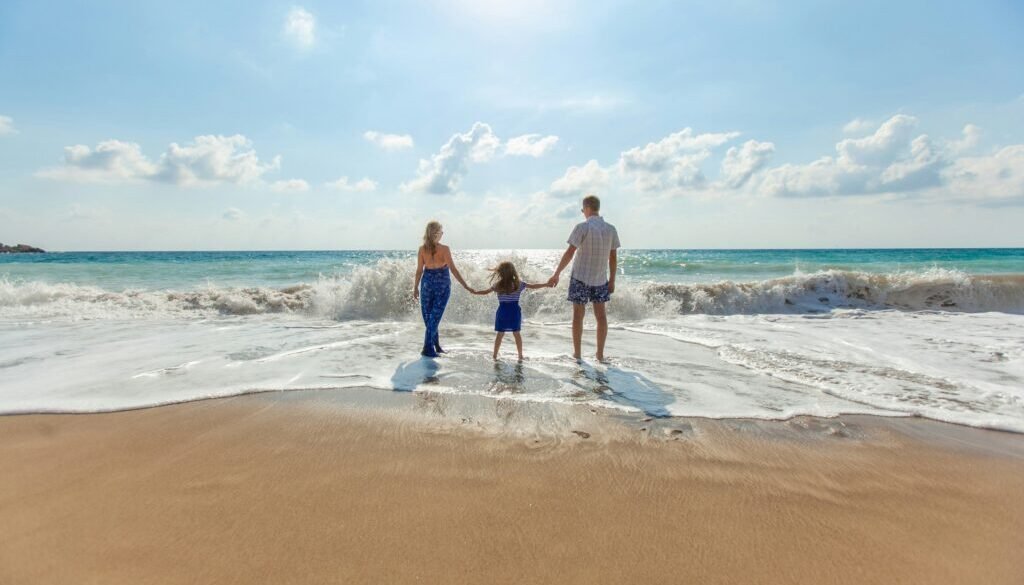Fun and Affordable Family Eco Adventures: Best Guide For Teaching Kids Responsible Travel
Traveling with kids offers a unique opportunity to shape their understanding of the world and install values that will last a lifetime. One of the most important lessons we can teach our children through travel is the value of responsible and eco-friendly practices. As parents, we have a pivotal role in guiding the next generation toward a more sustainable future. This article explores the importance of responsible travel, the valuable role parents play, and how all generations can contribute to fostering sustainable habits.
The Importance of Teaching Kids Responsible Travel
Creating Environmental Stewards
Children are naturally curious and impressionable. When we introduce them to the wonders of nature and the importance of protecting it, we cultivate a generation of environmental stewards. By teaching kids to respect and care for the environment, we lay the foundation for a sustainable future. Through travel, children can witness the beauty of different ecosystems, from lush rainforests to vibrant coral reefs, and understand the impact of human activities on these fragile environments.
Building a Foundation for Sustainable Living
Responsible travel is more than just a vacation mindset; it’s a lifestyle choice. When children learn to travel sustainably, they are more likely to adopt eco-friendly habits in their everyday lives. This ripple effect can lead to broader societal changes as these children grow into environmentally conscious adults. Simple actions, like reducing waste, conserving water, and choosing sustainable products, become second nature when ingrained from a young age.
Fostering Empathy and Global Awareness
Travel exposes children to diverse cultures and ways of life, fostering empathy and understanding. When we travel responsibly, we emphasize respect for local communities and environments, teaching kids to appreciate and protect the world’s diversity. This global awareness helps children develop a sense of responsibility toward people and places beyond their immediate surroundings, encouraging them to think globally and act locally.
Our Role as Parents in Responsible Travel
Leading by Example
Children learn by observing their parents. By practicing responsible travel, parents set a powerful example. Simple actions, like reducing waste, choosing sustainable accommodations, and supporting local businesses, demonstrate to children the importance of making conscious choices. When children see their parents actively engaging in eco-friendly practices, they are more likely to adopt these behaviors themselves.
Educational Opportunities
Every trip is an educational opportunity. Parents can use travel to teach their kids about different ecosystems, cultures, and the impact of human activities on the planet. Engaging in conversations about sustainability during trips makes these lessons more impactful and memorable. For example, visiting a national park can be an opportunity to discuss wildlife conservation, while a trip to a local market can highlight the benefits of supporting local economies.
Installing Values
Traveling responsibly helps install core values such as respect, empathy, and mindfulness. These values are not only crucial for sustainable travel but also for overall personal development. Children who learn these principles are likely to grow into compassionate and responsible adults. By emphasizing the importance of respecting nature and local cultures, parents can help their children develop a deeper connection to the world around them.
The Responsibility of All Generations
A Collective Effort
Sustainability is a collective effort that requires participation from all generations. While parents play a direct role in teaching their children, grandparents, teachers, and community leaders also contribute to shaping young minds. Each interaction and lesson reinforces the importance of protecting our planet. For instance, grandparents can share stories about how travel and lifestyles have changed over the years, providing valuable context and wisdom.
Passing Down Wisdom
Older generations have valuable knowledge and experiences that can inspire younger ones. Sharing stories about how travel and lifestyles have changed over the years, along with the consequences of these changes, can help children understand the significance of sustainable practices. These stories can serve as powerful reminders of the impact of human actions on the environment and the importance of making responsible choices.
Creating a Legacy
By focusing on responsible travel, we create a legacy of sustainability for future generations. This legacy is not just about preserving the environment but also about fostering a global community that values and protects our shared resources. When families prioritize eco-friendly travel, they contribute to a larger movement that ensures a healthier planet for everyone.
Conclusion
Traveling responsibly with kids doesn’t have to be difficult or expensive. By choosing sustainable options and te
aching our children the value of eco-friendly practices, we can make a positive impact on the environment and create lasting memories. Remember, the goal is to enjoy the journey and leave a lighter footprint on the places we visit.
Teaching our children about responsible travel is a gift that will benefit them and the planet for years to come. So pack your bags, plan your adventure, and embark on a journey that’s fun, educational, and kind to the Earth.
We’ll be sharing guides and tips for planning and packing for family eco friendly travels in our next posts, so stay tuned!



